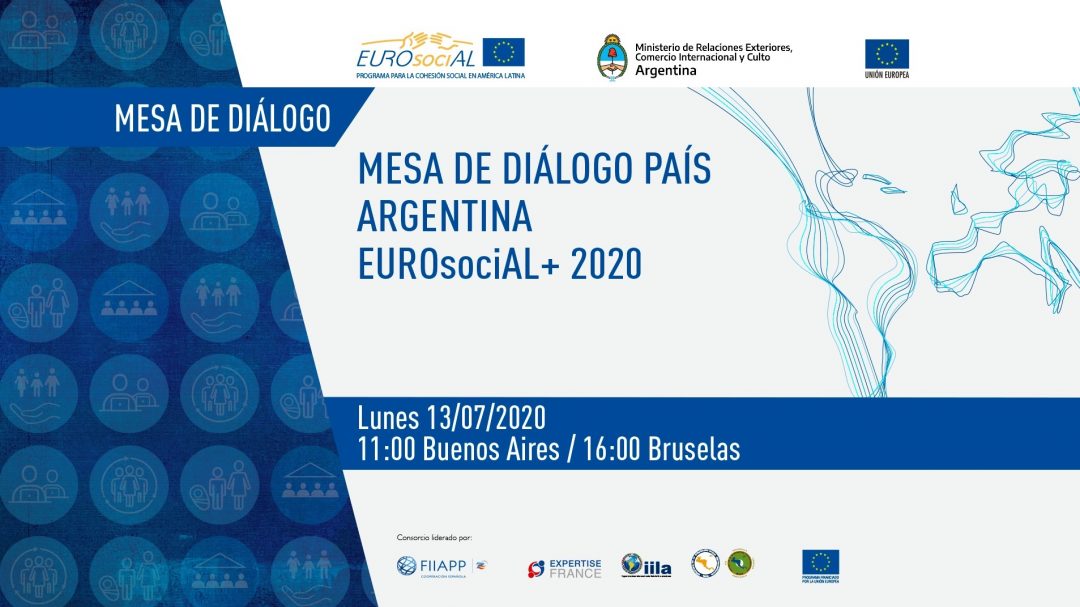Officials from more than 20 areas of Argentina agreed with the European Union, through EUROsociAL+, on work priorities aligned with the main areas of national management and framed within the context of the crisis caused by the coronavirus

Mesa de diálogo país Argentina celebrada de forma telemática
The Ministry of Foreign Affairs, International Trade, and Worship and the European Union organised a Country Dialogue Round Table with the participation of more than 30 officials and representatives from Argentine institutions, within the framework of which they agreed on strategic work priorities until the end of 2021.
The meeting took place within the framework of EUROsociAL+, the European Union programme that is finalising its third phase of implementation started in 2016. The programme, flagship of the European Union’s international cooperation with Latin America, seeks to build bridges between authorities, managers, and experts from both regions to exchange experiences and best practices that improve social cohesion and reduce inequality in Latin America.
The Ambassador of the European Union in Argentina, Aude Maio-Coliche, said, ‘We are really very excited about the priorities and requests for support presented by the different ministries, and even the National Congress. We will accompany with European expertise a significant number of Argentine counterparts, with the same objective: to support public policy reforms that promote gender equality, democratic governance, and a wide variety of social policies to strengthen social cohesion’.
Within this framework, the European Union will support the strengthening of the ‘Argentina Plan against Hunger’, led by the Ministry of Social Development in collaboration with the National Council for the Coordination of Social Policies, and the Secretariat for Strategic Affairs of the Presidency of the Nation in the development of guidelines for the running of the Economic and Social Council. Likewise, and among other actions, it will accompany the Ministries of Women, Genders, and Diversity and of Social Development in the construction of a more equitable comprehensive care system with a gender perspective.
The Secretary of Foreign Affairs of the Ministry, Ambassador Pablo Tettamanti, highlighted ‘the importance of continuing to strengthen the association between the European Union and Argentina’ and, in this sense, stressed the ‘strategic vision that international cooperation must conserve to make an effective contribution to development’.
For his part, the programme director, Juan Manuel Santomé, concluded that ‘after 15 years’ experience, EUROsociAL+ has proven to be an exceptional laboratory of innovation and has established itself as a genuine and different model of cooperation in Latin America for its demand and results focus, multisectoral perspective, South-South (peer) and triangular cooperation, policy dialogue, and the facilitation of flexible learning schemes’.
On EUROsociAL+
The European Union cooperation programme with Latin America, EUROsociAL+, was set up in 2005 within the framework of the Summit of Heads of State and Government of the European Union and Latin America and the Caribbean in Guadalajara, Mexico, in which the importance of social cohesion as a priority in the bi-regional strategic partnership was explicitly stated.
EUROsociAL+ incorporated gender equality in its third phase as a priority in all its interventions, guaranteeing the gender perspective in all public policies accompanied from their design to their implementation, as well as its commitment to the Sustainable Development Goals, assuming the guiding principle of the 2030 Agenda that points to the need to approach development processes from a perspective of reciprocity, horizontal cooperation, and global interrelation.



